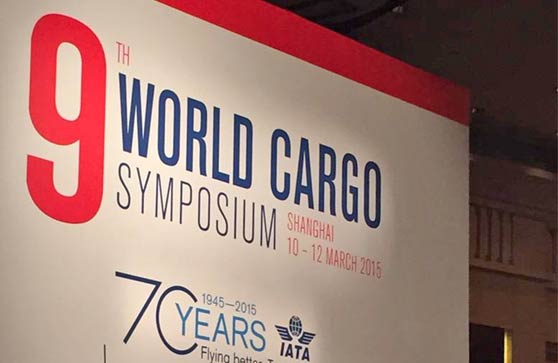
Setting priorities for air cargo
The 9th World Cargo Symposium by IATA in Shanghai called for strong action to implement business transformation that will keep air cargo at the forefront of logistics innovation. While presenting a report on the health of air cargo industry for the year 2014, Julie Perovic, senior economist of the International Air Transport Association (IATA) said, […]

The 9th World Cargo Symposium by IATA in Shanghai called for strong action to implement business transformation that will keep air cargo at the forefront of logistics innovation.
While presenting a report on the health of air cargo industry for the year 2014, Julie Perovic, senior economist of the International Air Transport Association (IATA) said, air cargo had a much better year in 2014 than it has had for the past several years. “Total industry FTKs expanded by 4.5 percent in 2014 and volumes reached record highs by the end of the year. The improvement in air cargo performance in 2014 was driven by a cyclical, albeit fragile, upturn in the global economy,” Perovic explained in detail.
The deliberations at the IATA’s annual jamboree were around the theme of “improving the customer experience”. However, the central point of every panel discussion was about improving and increasing trade and commerce between regions and markets. Trade facilitation among economies is vital for air cargo industry to succeed. International trade is the single absolute requirement underlying the entire air freight industry. The cargo symposium discussed that if trade is made easier, the air freight industry blossoms. If trade is made more difficult, the industry withers.
Setting the agenda and direction for the global air cargo industry, IATA called for further action on three vital aspects of the air cargo business: transitioning to paperless freight processes, a focus on global handling standards for pharmaceutical freight, and tough action to ensure the continued safe transportation of lithium batteries by air.
“I am a cargo optimist. But business improvement will only come by constantly improving the value of cargo. There is a long haul ahead to recapture lost revenues, nevertheless the prospects for the future are bright because the industry is really starting to act strategically and plan for the future,” said Tony Tyler, IATA’s Director General and CEO at the opening of the 9th World Cargo Symposium.
The transition to paperless freight finally saw lift-off in 2014, as the industry exceeded 24 percent global e-Air Waybill (e-AWB) penetration. The industry is aiming to achieve 45 percent e-AWB penetration in 2015 and 80 percent in the following year.
Global handling standards for pharmaceutical goods will be an essential step towards air cargo improving its share of the $60 billion a year pharma logistics market. The industry needs to meet customer demands for the integrity of their goods, while complying with increasing amounts of regulation from global authorities.
The continued safe transportation of lithium batteries remains a key concern for the industry. IATA has developed the Lithium Battery Shipping Guidelines in Chinese to raise awareness on this vital issue, but the issue is also one for government authorities.
Glyn Hughes, IATA’s Global Head of Cargo called the industry to embrace digital information that can be exchanged in a transparent manner. “The challenge laid down to cut 48 hours out of the average shipping time is more relevant than ever. The whole air cargo supply chain must be dedicated to moving things faster. Now we need to get this done,” said Hughes.

